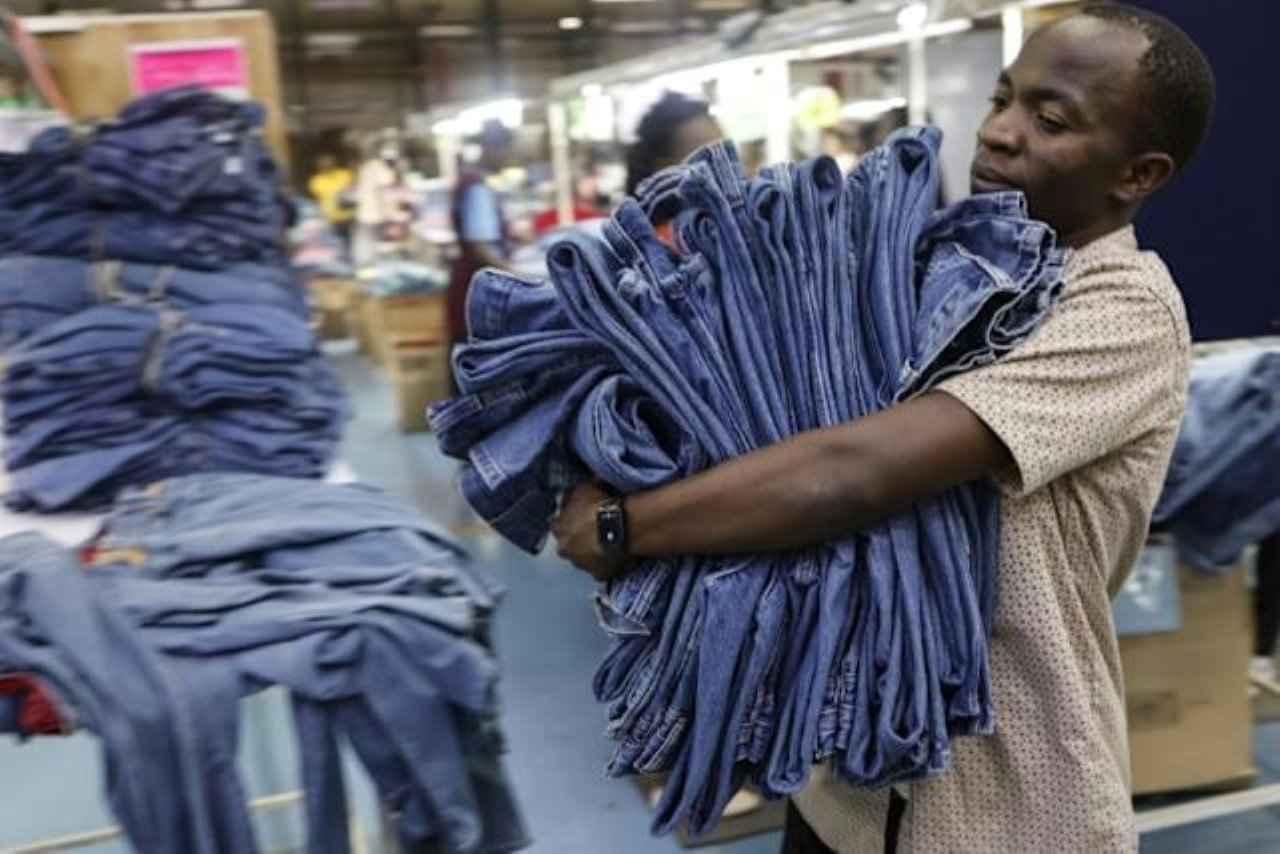PARIS, 11 April 2025 (BSS/AFP) – The fate of the African Growth and Opportunity Act (AGOA), a pivotal trade agreement between the United States and Africa, hangs in the balance as its renewal deadline approaches this September. The uncertainty has deepened following Donald Trump’s return to the White House and renewed scepticism towards multilateral trade frameworks.
What is AGOA?
Enacted in 2000 under President Bill Clinton, AGOA grants duty-free access to the US market for a wide range of goods from eligible African countries. The accord is designed not only to promote trade but also to encourage democratic governance, respect for human rights, and anti-corruption efforts.
To date, around 30 African nations benefit from AGOA’s provisions, with exports ranging from textiles and vehicles to agricultural produce and petroleum products.
AGOA in Numbers (2023)
| Category | Export Value (USD) | Key Countries Involved |
|---|---|---|
| Total AGOA Exports | $9.26 billion | – |
| – Oil/Energy Products | $4.25 billion | Nigeria, Angola |
| – Non-Oil Exports | $5.01 billion | South Africa, Kenya, Lesotho |
| South Africa (Total) | $3.6 billion | Vehicles, precious metals |
| – Vehicle Exports | $1.88 billion | Mainly under duty-free terms |
| Kenya (Textiles) | $509 million | Garments and apparel |
| Madagascar (Textiles) | $339 million | Garments |
| Lesotho (Textiles) | $167 million | Garments |
| Nigeria (Oil/Energy) | $3.7 billion | Crude oil |
Clouds of Uncertainty
AGOA is due for review in September 2025, but as of now, no official decision has been communicated from Washington. Experts fear the agreement’s renewal is at risk, particularly due to Trump’s hostility towards multilateral deals and increased focus on “America First” trade policies.
“Given Trump’s scepticism of multilateral frameworks, AGOA’s continuation could be legitimately under threat,” said Ronak Gopaldas, analyst at the Institute for Strategic Studies.
Though a bipartisan bill was submitted before the election proposing AGOA’s renewal until 2041, its future now appears to be in jeopardy.
Possible Scenarios
Trump’s administration has several levers at its disposal, including:
-
Non-renewal of the entire agreement
-
Targeted exclusion of countries, such as South Africa
-
Sector-specific restrictions, particularly in the automotive industry
According to Richard Morrow from the Brenthurst Foundation, Trump could invoke the clause requiring compliance with US security and foreign policy interests to remove certain countries or sectors from the list.
South Africa: The Most at Risk
South Africa is AGOA’s largest non-oil beneficiary, exporting goods worth $3.6 billion, with vehicles accounting for over $1.88 billion of that amount. The automotive industry fears a massive setback should AGOA be revoked or altered unfavourably.
“86,000 direct jobs and up to 125,000 including subcontractors depend on AGOA,” noted Billy Tom, President of Naamsa, the national automotive industry association.
Political tensions have further exacerbated South Africa’s position. Trump, alongside Elon Musk, a South African-born US billionaire and close presidential ally, has voiced strong criticism of Pretoria’s policies, including:
-
Land expropriation laws, perceived by Washington as discriminatory
-
South Africa’s legal challenge against Israel at the International Court of Justice, over alleged genocide in Gaza
“I don’t think that South Africa has got a chance of the renewal,” stated Neil Diamond, head of the South African Chamber of Commerce in the US.
Impacts on Other African Nations
Other African countries also stand to lose substantially if AGOA is not renewed:
| Country | Key Export Under AGOA | 2023 Export Value (USD) |
|---|---|---|
| Kenya | Textiles | $509 million |
| Madagascar | Textiles | $339 million |
| Lesotho | Textiles | $167 million |
| Nigeria | Oil & energy | $3.7 billion |
| Ghana | Agricultural goods | Moderate levels |
These countries may struggle to find alternative markets or maintain competitiveness without AGOA’s preferential access to the world’s largest economy.
